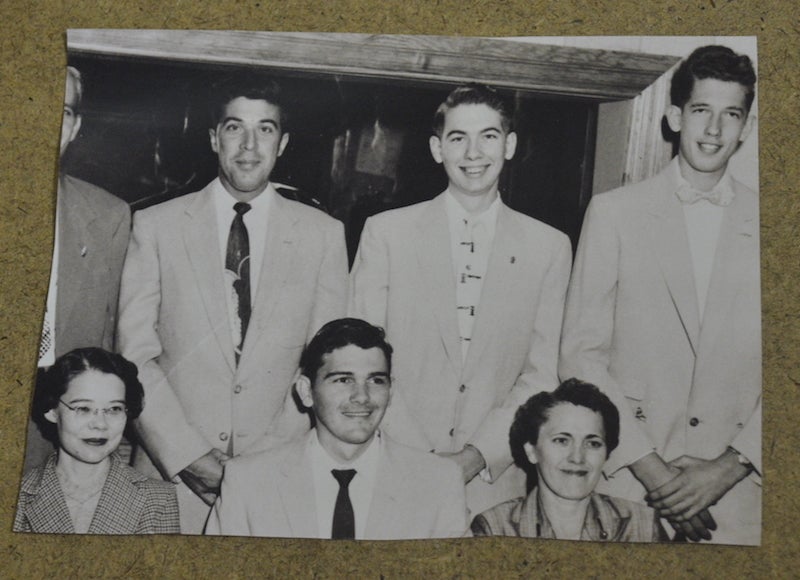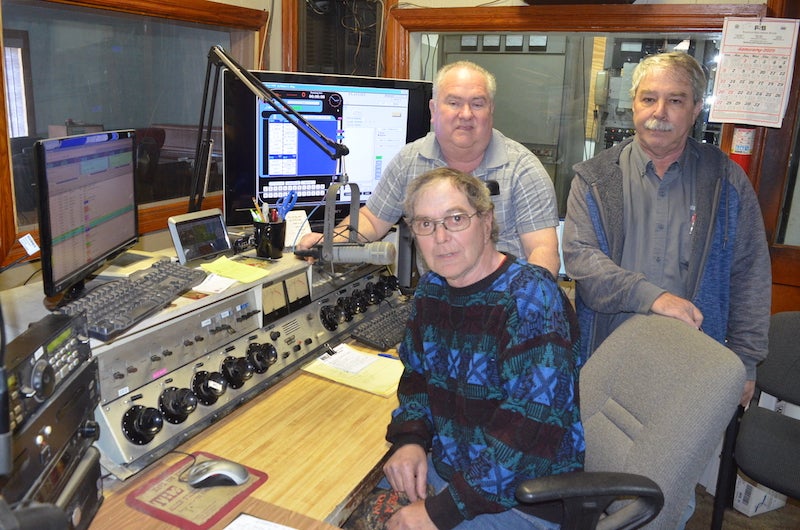
Every time Chilton County residents tune their radios to 95.5 FM or 1000 AM, they are tuning in to a part of history.
Not only can residents listen to the nation’s longest continuously-running daily Gospel radio program — but they can also join a community of listeners going back 70-plus years.
WKLF first became a radio station on Feb. 10, 1948 — that’s when the official FCC license was issued that brought the station into existence. On the anniversary of that date in2019, the new owners of WKLF marked the completion of70 years of broadcasting with a community celebration. The event was a chance for both listeners and some of WKLF’s own to relive some of the memories that have taken place during that time.
“Many folks started their morning awakening to the Bald-Headed Milkman and the morning temperature from the back porch,” recalled Chris Johnson, new co-owner of the station alongside Robert King.
The nickname belonged to former station co-owner and radio personality the late Billy Lawrence, who hosted the program “Singing the Gospel” alongside his wife, the late Willodean, “The Little Woman” starting in the early’60s. Willodean continued hosting the program long after her husband’s death up until her passing in 2017. Station manager Layle Samford is the current host.
During the interview for this story, Johnson asked if the original thermometer used to read the morning temperature for Lawrence’s program was still there.
“It broke unfortunately,” Samford said.
There are many other similar stories that have been shared over the years, both humorous and touching. Samford shared a moment when Buck Littleton and Lawrence were emceeing a high school singing:
“Billy put a wig on his head and walked behind Buck, and everybody started laughing. It was the only time in his life that Buck was speechless. He grabbed it (the wig) and threw it backstage.”
Al Headley, a broadcaster at the station from 1971 to 1990, remembers when Chilton County Schools Superintendent Frank Daniel would get up on early winter mornings and ride the local roadways to see whether they were passable for school traffic. He would stop by the radio station at about 4:30 a.m. to relay his findings to the community.
“This was back before social media, and people depended on their radio station in situations like what we just had,” said Headley, referring to cold weather in January. “I felt like the community was very close to the radio station during our time out there. That was all part of that closeness.”
Headley, who took part in broadcasting local parades and pageants (he is still known as the voice of the Chilton County Peach Pageant), remembers the days when even the commercials were done live on the air.
“Those were the days when you did it all,” he said.

Former WKLF DJ David Robinson is one of many people who started their career at the station. He was still a high school student when he began working there part-time in 1964.
“Radio at that time was a lot of fun,” he said. “Radio people were well thought of in the community. You were kind of a celebrity in the community in the ’60s.”
While at WKLF, Robinson gained lots of the experience he would need to further his career in radio. He ended up working at
multiple stations and even returned in the ’70s. He would eventually own three stations.
“To me, that was the heyday of radio,” Robinson said. “It was more community oriented. Most people counted on their radio station for everything — weather, news, whatever was going on.”
Roger Mims, also a WKLF DJ in the ’70s and ’80s, shares Headley and Robinson’s nostalgia for the times.
“I miss the days of live DJs on the radio,” Mims said.
The idea for the station’s creation is credited to John Kelley Robinson, who in 1947 had planned for the call letters to
be “WJKW” thought to be partly taken from his initials. He applied for 760 kHz with 500 watts, but on Oct. 14, 1947, the permit was issued for 980 kHz and 1,000 watts, increasing the station’s power and resulting in the call letters being changed to
WKLF. It operated like that from late 1947 with program testing and was licensed on Feb. 10 the following year as Southeastern
Broadcasting Company.
In 1947, the WKLF studio was located at 703 1/2 West Second Ave. N in downtown Clanton, located in the top floor of what is now the Chilton County Arts Council building. In the early ’50s, the station moved to the transmitter site location to Highway 22 west of Clanton, where it remains to this day.
Among the first broadcasters at WKLF were the late Marion W. Easterling, also known as a prolific Gospel songwriter. He has been listed in the Guinness Book of World Records for hosting “America’s Favorites,” which became the nation’s longest continuously-running daily Gospel radio program. “America’s Favorites” can still be heard today, weekdays from 11 a.m. to 1 p.m., Saturdays from 11 to noon and Sundays from 7-8 a.m. The program features a mix of old and new Southern Gospel music.
Other early broadcasters included the Rev. Hymon Atcheson, father of well-known concert pianist Randall Atcheson; Curtis Harris, Elmer Harris, Jimmy Harris, Bill Hays, Littleton and Lawrence. The original station engineer was Lester Carter. Also, Helen Parrish and Mary Culp were secretaries who were well-known in the community.
In 1961, Robinson sold the station and SBC to James “Jack” Dennis, Lawrence and John O’Neal. At a later date, Dennis and O’Neal bought out Lawrence’s part of the station.
In 2004, SBC sold the station to Great South Wireless, and in 2018, Great South Wireless sold it to WKLF, LLC, the current owners. In 2017, the frequency changed from 980 to 1000, which opened the door for a potential increase in power, Johnson said. As for the station’s call letters, they will remain unchanged. But unfortunately, no one knows if the letters stand for anything or if they were randomly issued by the FCC.
“It’s been that way for so long we just think it’s part of the community,” said King.
